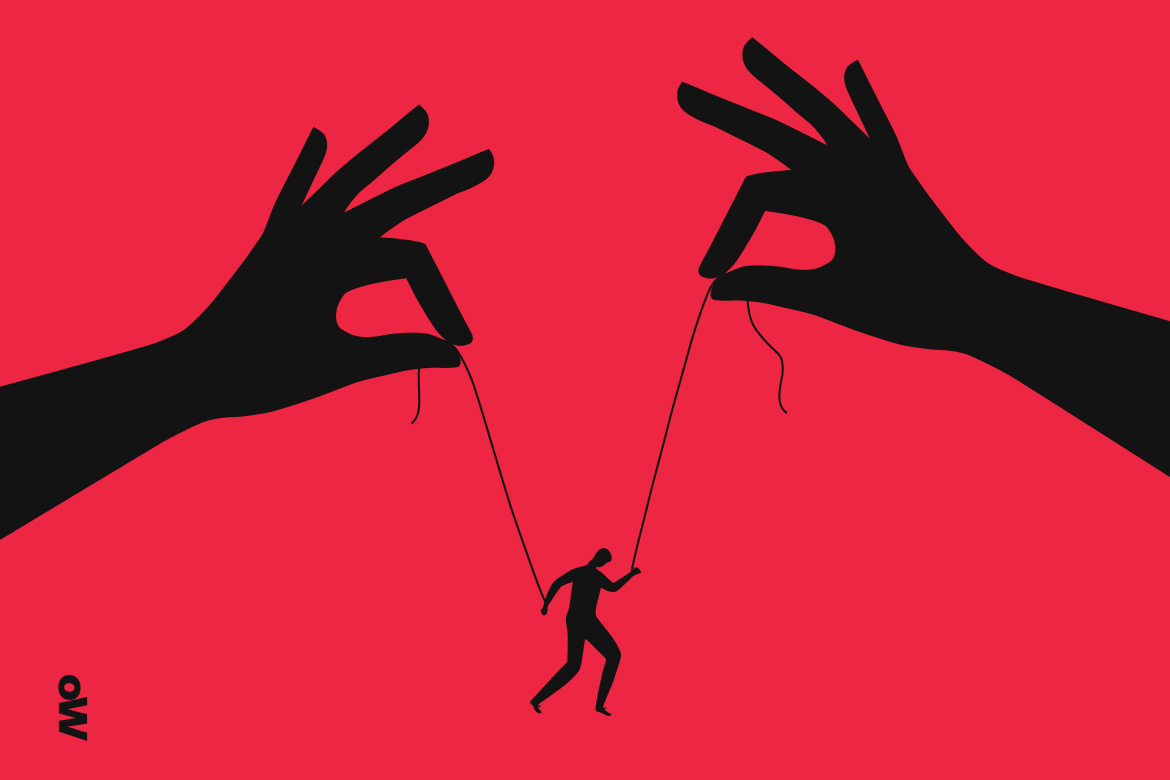Am I Mean Quiz: Do I Lack Empathy?

We’ve all stumbled over the same rakes at some point, inflicting pain on those around us with our callousness and selfishness. But while some have learned to draw lessons from it, others continue going around the circle of meanness. The “Am I Mean?” quiz is that very wake-up call that can rouse you from the joyless slumber of self-destruction. Will you dare to listen to it?
Why Do We Ask Ourselves “Am I Mean?”
Self-knowledge is an endless process, for our personality constantly evolves under the influence of life experience. By asking ourselves “Am I mean?”, we exhibit a capacity for introspection and self-analysis. It means we are concerned about our moral character and strive for self-improvement.
Moreover, such a question may be prompted by specific events or situations in our lives that have called our moral foundations into question. Perhaps we have acted unworthily towards a loved one, or we ourselves have suffered from someone else’s meanness. In such moments, we begin to compare our behavior to ideals of goodness and justice.

Signs of a Mean Person – Dissected
To determine if you are a mean person, it is important to understand what traits exactly indicate meanness. Let’s examine the main ones in more detail.
Selfish Behavior
Selfishness is the brightest sign of meanness. A selfish person puts their desires and needs above the interests of others. They manipulate those around them, lie and betray to achieve personal goals.
Manifestations of selfishness:
- Unwillingness to compromise
- Shifting responsibility onto others
- Using people for one’s own interests
- Inattention to the feelings and emotions of loved ones
- Deceit and lies for personal gain
Envy and Jealousy
To envy others’ successes and be jealous of loved ones is the lot of the weak-spirited. Envy and jealousy speak of self-doubt, low self-esteem, and the inability to sincerely rejoice in others’ achievements.
Symptoms of envy:
- Desire to belittle others’ accomplishments
- Downplaying the importance of others’ victories
- Sarcasm and snide remarks about others’ successes
- Striving to dominate and stand out at any cost
Manifestations of jealousy:
- Excessive control over one’s partner
- Unfounded suspicion and distrust
- Restricting the freedom of a loved one
- Outbursts of anger due to jealousy
Cruelty and Lack of Compassion
The ability to feel compassion is an integral quality of a good person. Cruel treatment of people or animals, demonstrative rudeness in communication – all of this points to a deficit of mercy and empathy.

Reasons Why You Might Be Mean
Before judging yourself too harshly, it’s worth examining possible reasons why we sometimes behave meanly. Here are some of the most common factors:
- Traumatic childhood experience. If a person experienced violence, abuse, emotional deprivation or other negative events in childhood, this can contribute to the formation of mean character traits as a defense mechanism.
- Low self-esteem. People with low self-respect often compensate for their insecurity by trying to manipulate and control others. This gives them a false sense of power and superiority.
- Influence of environment. We learn not only from our own experience, but also from the examples we see around us. If mean patterns of behavior are present in the family or social environment, a person may unconsciously adopt them.
- Psychological disorders. Some mental illnesses, such as narcissistic or antisocial personality disorder, are characterized by a lack of empathy, manipulativeness, and indifference to moral norms.
- Negative life experience. Betrayal, disappointment, cruelty from other people can also provoke mean reactions, especially if a person has not learned to cope with painful experiences constructively.
Understanding the roots of meanness does not justify it, but helps take a more balanced and compassionate approach to working on oneself.

How to Work on Yourself if You Are Mean
If the results of the test indicate that you possess mean qualities, do not despair! Each of us has the potential for growth and change. Here are some recommendations:
- Be honest with yourself. The first step is to recognize and acknowledge the presence of negative traits without self-deception and excuses. Only then can you begin working on yourself.
- Develop empathy. Learn to look at a situation through the eyes of another person, empathize with their emotions and needs. This will help overcome egocentrism and indifference.
- Analyze your thoughts and behavior. Pay attention to situations where you tend towards manipulation, deceit or cruelty, and ask yourself why this is happening. Then consciously choose more constructive reactions.
- Work on developing positive qualities. Focus on such traits as sincerity, kindness, compassion and honesty in relationships with other people.
- Surround yourself with positive influence. Make acquaintances with people who serve as an example of high moral principles and noble behavior for you. Their example will inspire you to change.
- Don’t be afraid to ask for help. If you cannot cope on your own, seek the help of a psychologist or psychotherapist. Professional support will help unravel the deep-seated causes and effective strategies for overcoming meanness.
In conclusion, it is important to remember that meanness is not a final given. It is a transient state that can and should be rid of. Every person is capable of fundamental change, no matter how deeply negative traits are entrenched in them.
The process of transformation requires tremendous effort and perseverance. At times, you may have to rebuild your entire system of values, rethink life priorities, and discard ingrained patterns of behavior.
Do not be afraid to show vulnerability and be honest with yourself. It is the very awareness of one’s own shortcomings and willingness to work on them that distinguishes a truly strong personality. May the “Am I Mean?” quiz serve not as a cause for self-flagellation, but as a starting point for deep self-knowledge and personal growth.
How to Play?
Click the "Start Quiz" button and answer each quiz question honestly. There are no right or wrong answers. You may encounter multiple-choice questions or statements to rate on a scale of agreement. Once you finish the quiz, you'll receive results that provide insight into your personality traits, including strengths and weaknesses. Use this information to increase self-awareness and make positive changes.
How many questions does this quiz have?
15 Questions
How long does it take to complete this quiz?
4 Minutes
Questions Overview
- "That looks fabulous on you!"
- "It's not my style, but if you like it, that's all that matters."
- "Well, it's different."
- "Yikes, what were you thinking?"
- Let them know discreetly.
- Tell them, but not without chuckling first.
- Avoid telling them and let someone else do it.
- Say nothing and enjoy the spectacle.
- Slow down and let them in.
- Let them in, but only if they’ve been waiting a while.
- Speed up so they have to get behind you.
- Not only do you not let them in, you honk and gesture for good measure.
- Rush over to help them up.
- Check if they're okay, but you can't help laughing a bit.
- Ignore it and move on.
- Laugh out loud and tell your friends about it later.
- Help them correct it and reassure them.
- Point it out but also offer some advice.
- Point it out, and hint that they should be more careful next time.
- Bring it up during the next team meeting to make an example out of it.
- Don't mind and assure them it's okay.
- Feel a little upset, but brush it off.
- Give them the silent treatment for a few days.
- Start planning revenge for when their birthday comes.
- Kindly remind them of your original order.
- Show a hint of irritation, but correct them politely.
- Demand a discount for their mistake.
- Yell at them and ask to see the manager.
- Compliment them on their excellent taste.
- Feel a bit annoyed but shake it off.
- Make a backhanded compliment about it.
- Start a rumor that they copied your style.
- Laugh it off; it's only pizza.
- Ask them to replace it next time they order pizza.
- Make a passive-aggressive note about personal food items.
- Eat their leftovers without asking. Revenge is sweet.
- Ignore it and focus on the movie.
- Politely ask them to keep it down.
- Glare at them until they get the hint.
- Snatch their phone and turn it off yourself.
- Smile and assure them it's no big deal.
- Accept their apology, but clean your shoe visibly.
- Make a sarcastic comment about watching where they're going.
- Step on their shoe in return. An eye for an eye.
- Offer your help or a listening ear.
- Express sympathy but keep to your own work.
- Mention that everyone has bad days.
- Tell them to suck it up. We've all got problems.
- Let it slide. You've borrowed their things too.
- Ask them not to do it again.
- Hide their favorite items in retaliation.
- Declare a full-blown sibling war.
- Offer to help them with their part.
- Ask them nicely to contribute more.
- Publicly call them out on their lack of effort.
- Let them take the fall when the project is graded.
- Wave back enthusiastically.
- Give them a half-hearted wave.
- Pretend you didn't see them.
- Look at them, then pointedly ignore them.





